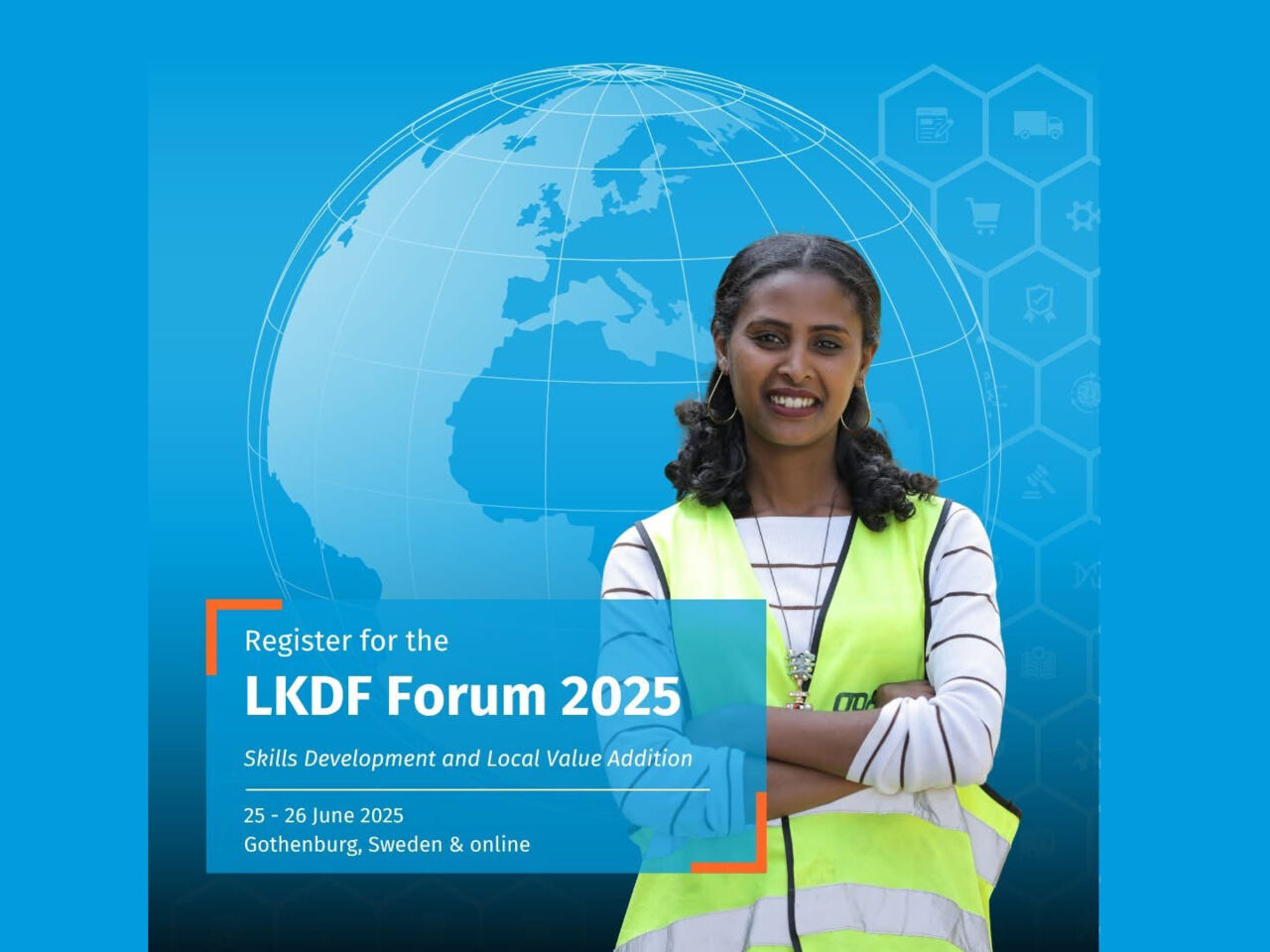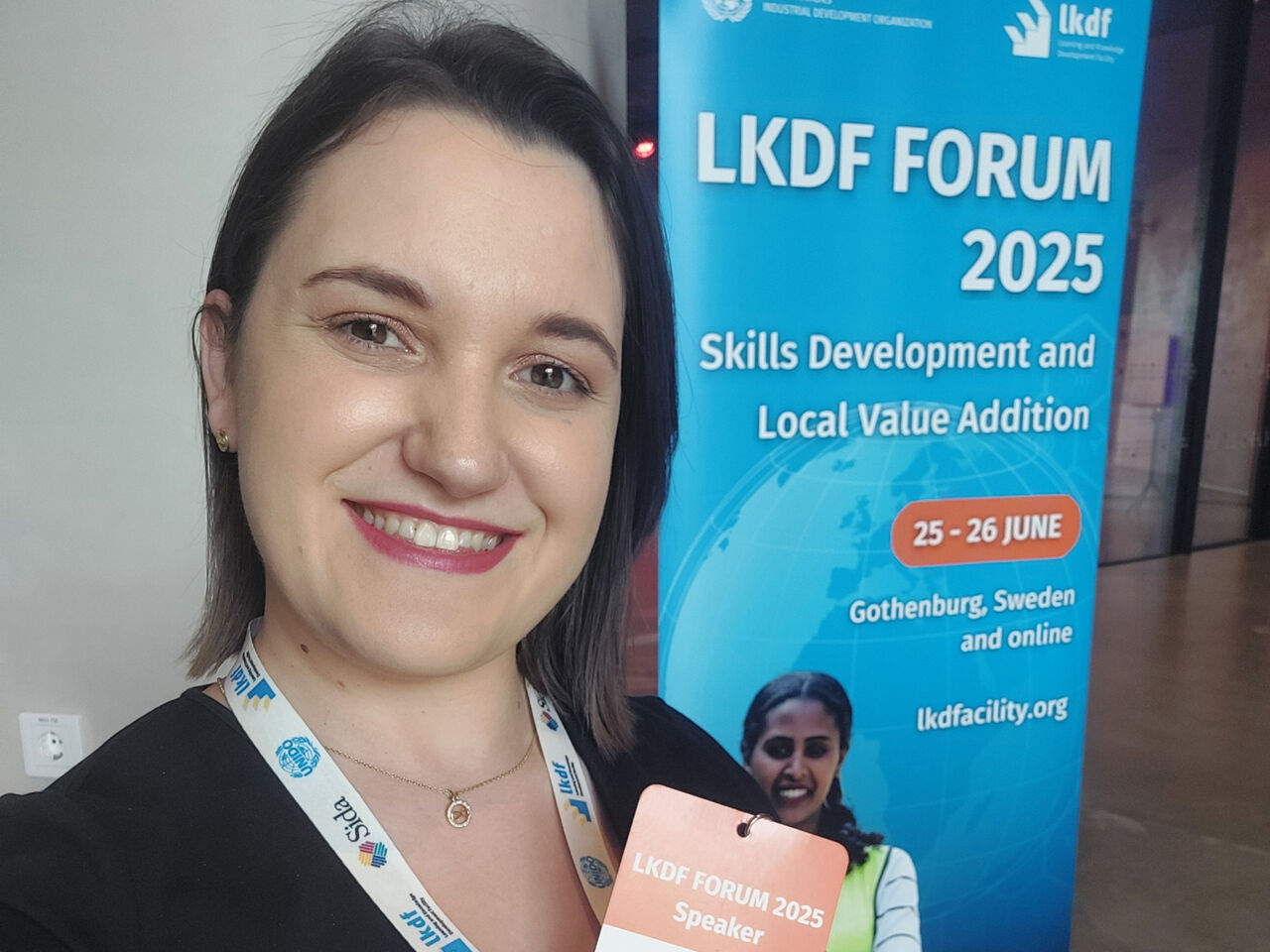2 July 2025
WorldSkills joins UNIDO advocating for skills for sustainable supply chains
The voice of WorldSkills youth was at the Learning and Knowledge Development Facility Forum 2025 in Gothenburg, Sweden last week discussing the importance of industry-driven skills development and private-public partnerships.

On 25 and 26 June, United Nations Industrial Development Organization (UNIDO) and the Swedish International Development Cooperation Agency (Sida) brought together some of the world’s leading thought leaders in Technical and Vocational Education and Training (TVET) to discuss how skills can contribute to more resilient and equitable supply chains.
Hosted by the Volvo Group, the theme of the Learning and Knowledge Development Facility (LKDF) Forum 2025 was “Skills Development and Local Value Addition: Ensuring Sustainable Growth in Global Supply Chains.” Alongside keynote speeches and discussions, the two-day event included networking opportunities and co-creation workshops to enable greater collaborative action.
Among the many influential voices at the LKDF Forum was Megan Yeates, Champion from WorldSkills Ireland and gold Medallist in Freight Forwarding at WorldSkills Kazan 2019. Megan currently serves as Chief Expert for Logistics and Freight Forwarding at WorldSkills Ireland and is Recruitment Lead at Technological University Dublin.
Megan was the youth representative featured in the Forum’s programme. She joined the session entitled, “From Ground to Market: Creating Value in the Supply Chain,” where the panel examined how mechanisms like skills development, supplier upgrading, digitalization, and green technology can improve efficiency and drive innovation in supply chains.
During the discussion, Megan drew on her experience of working in the logistics industry at FTA Ireland and now her role supporting young people in their skills development. She stressed the importance of equipping youth with relevant, demand-driven industrial skills if they are going to thrive in the future workforce.

Following the event, Megan identified two significant outcomes of particular relevance for the WorldSkills community.
The first was agreement about the importance of Private Public Partnerships (PPP). These partnerships allow industry to highlight the skills it needs to rapidly transform and digitize its supply chains and work together with the public sector to design, build, and upgrade TVET institutions so they can more effectively upskill the next generation of talent.
The second was about the critical need to embed local value in the supply chain. Delegates heard that by performing more production and processing activities locally, it strengthens economic resilience, creates jobs, and supports sustainable growth in global supply chains.
Megan shares, “The Forum was full of exciting discussions about how skills have such a positive impact on adding local value, and the difference that partnerships can make in developing skills. I was particularly delighted to hear about all the critical projects to help developing nations support the young, skilled workforce in order to empower the next generation of skilled workers.”
Megan’s presence underscored the vital role that skilled youth, and the organizations that support them, play in shaping economic resilience and social equity.
She reflects, “being part of the Forum showed just how important it is to include youth voices in shaping future-ready skills ecosystems. Through WorldSkills, I’ve seen how empowering young people can transform industries, and it was inspiring to share that with delegates who hadn’t encountered our work before. Hopefully, I’ve sparked some new thinking about what’s possible when we invest in skills.”
Achieving sustainable and ethical supply chains requires a transformation in industrial processes, business relations, and workforce capabilities, with skills development playing a central role in this transition. As the world navigates these new global challenges, voices like Megan’s are key to ensuring future supply chain skill strategies are not only demand-driven but have youth and local value at their heart.